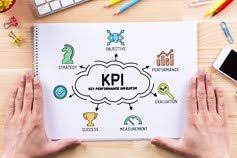 Read more here
Read more here

IIBA Endorsed Certificate in Key Performance Indicators (KPIs)
DATE
2024-06-18;
LOCATION
To Be Determined;
Why Attend?
More than ever, professionals in all types of businesses, public or private, are realizing that what gets measured gets done and what gets done well gets rewarded. This course aims at providing participants with the science of translating input and output to outcome. Through a series of case studies and workshops, the course helps participants learn and apply the fundamentals behind developing robust Key Performance Indicators (KPIs) in all functions across all levels. Numerous case studies and statistics have shown that achievement of strategic and operational goals have a much greater level of success when these goals are measured with the right KPIs. These KPIs will ensure that progress is measured towards the goal and will show whether the goal is effectively achieved.
In this course, participants will discover the world of KPIs, their types, uses, and how they relate to each aspect of the business. They will master the step-by-step approach to developing the right KPIs and the most appropriate dashboards or scorecards for monitoring and reporting these KPIs to their line managers.
 Course Objectives
Course Objectives
-
This Course Objective Hasn't Been Provided Yet
 Target Audience
Target Audience
All managers and senior professionals who are involved in influencing, formulating or supporting the long term planning and strategy of their department or organization, as well as those who are responsible for linking, measuring and improving the performance of the organization, including strategy or performance management professionals, balanced scorecard course managers, business unit and department managers and business analysts.
- The diverse world of KPIs
Benefits of performance measurement
The diverse world of KPIs
Explaining KPIs and their crucial role in managing performance
Designing a world-class KPI measurement system to guide the right organizational decisions
- Defining effective KPIs to address the needs of all key stakeholders
- Differentiating between types of KPIs and their cause-effect relationships
- The logic model in an organization
- Spotting problems with KPI measurement systems and identifying solutions
- Selecting “mission critical” outcome KPIs
- Balanced measures: one concept, different frameworks
- 7 steps to determine the most critical KPIs
- Evaluating your existing KPI measurement system for enhancement opportunities
- Using KPIs in different management areas to target performance plans
- Defining financial KPIs to measure outcome-based goals
- Defining customer value and satisfaction KPIs that result from operational excellence
- Selecting “mission critical” enabler KPIs
- Defining product and service quality KPIs that target optimal industry standards
- The eight dimensions of quality
- Defining process and operational efficiency KPIs that drive internal activities
- Measuring society results that ensure sustainability
- Defining human capital performance and satisfaction KPIs that support a high performance culture
- Components of employee satisfaction surveys
- The employee satisfaction index
- The learning and growth measurement framework
- Learning, innovation and growth KPIs
- Succeeding in the KPI implementation project
- Gaining senior team commitment to drive execution and show commitment
- Establishing a winning KPI team that is diverse and complementary in skills
- Embedding a results-oriented culture for the KPI project
- Setting up the right KPI development strategy tailored to the organization and its culture
- Marketing the KPI system to all employees to ensure proper understanding of their roles
- Facilitating the use of KPIs by teams in their working environments
- Refining KPIs to maintain their relevance in line with strategic pressures
- Managing the KPI measurement process
- KPI data sheets as an essential tool for managing KPIs
- Types of performance dashboards
- Types of KPI cascading
- Linking KPIs to strategy to ensure measurement of the right things at the right time
- Designing the interlinked KPI measurement system
- Benchmarking and developing inspiring targets
- Collecting and analyzing KPI measurement data
- Evidence collection and criteria
- Reporting KPI results using dashboards that fit management’s expectations
- Boosting performance-based on achieved results

Join Our Community